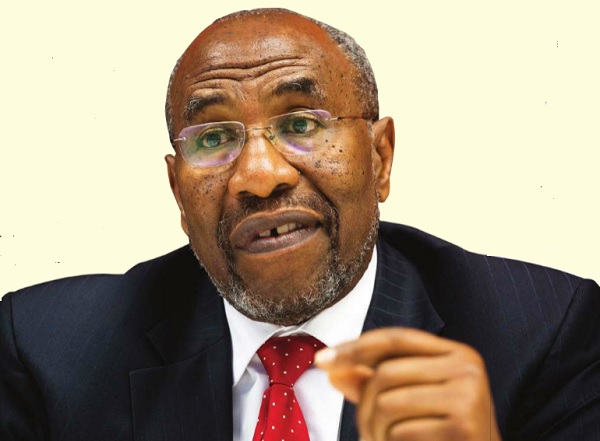
Just weeks after the World Bank froze new lending to Uganda because of the government failure to fully use already borrowed money, the country’s parliament has come under fire over alleged “incompetence”, writes Ronald Musoke and Flavia Nassaka.
The Deputy Leader of Government Business, First Deputy Prime Minister Moses Ali is calling for members of cabinet who are not performing to be punished. He said “high level of indiscipline among the ministers” is a result of lack of tough sanctions against them.
“If we want to improve the situation, we must introduce stringent sanctions,” he told parliament on Sept. 28.
The elderly Moses Ali is usually restrained about such issues. He was, however, speaking as Speaker of Parliament Rebecca Kadaga was announcing that she was sending her 431 colleagues into another recess on ground that President Yoweri Museveni’s 80-member strong Cabinet had failed to generate business for the House to debate.
Kadaga reminded the government that since the 10th Parliament started, the Cabinet had not brought any business to the House.
Kadaga’s accusation of no business from the executive provoked heated debate on the floor of Parliament with both the Opposition MPs and the NRM-leaning MPs putting the spotlight on ministers led by Leader of Government Business, the Prime Minister Ruhakana Rugunda and Chief Whip Ruth Nankabirwa.
Cecilia Ogwal, the Dokolo Woman MP who has been in Parliament since the 1980s brought up the matter of absentee ministers on the day Kadaga adjourned Parliament.
“The front bench has continued to be empty. And I can see how the Government Chief Whip struggles to speak for minister this and minister that,” she said, “There are people who have accepted to be in positions but they do not want to serve the country.”
She added: “The ministers are expected to table Bills, statements, motions as well as respond to MPs questions regarding their dockets; their absence often cripples the House.
“Why did they agree to be there when they have no time to be on the Front Bench?”
At the same stage during the 9th Parliament, members were busy debating the controversial oil deals scandal in which several ministers and oil companies were allegedly implicated in bribery.
This time, however, since the 10th parliament started business in May, it has been pre-occupied with personal welfare issues, including raising their motor vehicle allowances to Shs200 million from Shs150 million and proposing a Shs68 million burial allowance. Over the last four months, these issues have quickly alienated parliament from some of their constituents and placed its leaders on the defensive.
A week before this recess, in August, and in a sign of disarray, parliament had failed to conduct any business as the Speaker and her Deputy Speaker, Jacob Oulanyah, had led different parliament delegations to the annual Uganda North American Association conventions (UNAA) in Boston, Massachusetts, USA and Los Angeles, California.
When Parliament resumed in September after the two-week hiatus, focus turned to a controversial private members motion over something the Speaker dismissed as “not urgent”. Nakifuma County MP, Robert Ssekitoleko, had wanted to table a Bill regarding the tenure of judges. It sparked public outrage.
Prime Minister Rugunda has not offered any explanation for the alleged poor performance of the Cabinet he chairs but Chief Whip Ruth Nankabirwa agreed with Cecilia Ogwal.
“We know those ministers whose capacity to stay up to the end is found wanting. We need to follow them up together,” she told Parliament, “I pledge to this August House that I am not a person of Mchezo.”
In the end, Kadaga sent Parliament into a month-long recess starting Oct.6 until Nov.14.
 The Independent Uganda: You get the Truth we Pay the Price
The Independent Uganda: You get the Truth we Pay the Price


